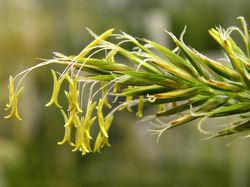New standards for pollen and spores
Plant traits in the form of biochemical, morphological and physiological features indicate the health of plants in their environments. These plant traits can be monitored in the pollen and spores of plants and fungi. However, the science of monitoring pollen and spores has been limited by laborious, slow and costly methods. Monitoring these microscopic structures is important for biodiversity, environmental management, and measuring the impact of climate in wild and cultivated plants. There are also health and safety benefits in monitoring spores and pollen as they can cause diseases, spoil food and decompose certain materials. The EU-funded POLLEN (Plant phenotyping by vibrational spectroscopy of pollen) initiative proposed to develop and standardise a form of spectroscopy and pattern recognition to identify pollen and spores of plants and fungi from the northern hemisphere. The research group intended to then link this data to evolutionary, biogeographical and climate information. POLLEN established a number of research collaborations among institutions across Europe. The collaborations ranged from resolving challenging sampling techniques in the spectroscopy of pollen and spores, to investigating the pollen of plants found in extreme environmental conditions. Project efforts led to studies that have covered more than 100 species of pollen and spores, with many more to be studied in the future. Results from these studies have been published in many peer-reviewed papers. The data obtained from the studies established by POLLEN will help us understand how plants interact with the environment and adapt to climate change. Methods developed during the project will be used to further advance the spectral pollen database. POLLEN's innovative, spectroscopic approach to monitoring these organisms will expand current knowledge and further advance science and society in its applications.







